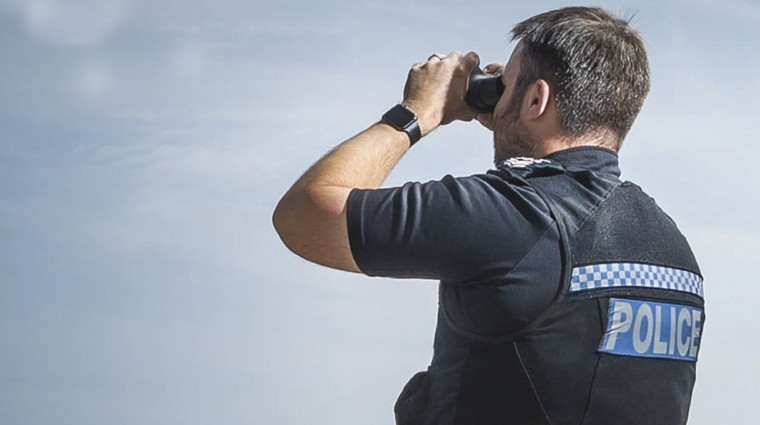For the first time, hundreds of officers in Sussex police will have specific training to tackle rural crime.
During a visit to Robert Seward at Chaites Farm near Haywards Heath in West Sussex, Sussex Police chief constable Giles York said 800 officers would be given the training over the next four years. Mr Seward’s experiences with Sussex Police are reported in another article on these pages.
The 800 officers will be made up from 600 who are being replaced because they are retiring, moving on to other jobs or for other reasons.
Another 200 officers are being recruited on top of what the force would normally have. They are being paid for by an earlier decision to increase the police precept by £12 a year for council tax payers in an average band D property.
Both the NFU and Country Land and Business Association were at the meeting with Mr York on Mr Seward’s farm. Robin Edwards, the CLA’s South East regional director, said: “We welcome the commitment by the chief constable to give specific rural and wildlife training to more than 800 officers over four years.” NFU South East regional director William White said: “We hadn’t seen the chief constable as upbeat about tackling rural crime for a number of years. He described the government’s decision to allow increased precept funding as a ‘game changer.’”
Both Mr Edwards and Mr White welcomed the latest Sussex Police rural crime strategy, which was published recently. The document says the strategy “has allowed Sussex Police to incorporate rural policing into a ‘business as usual’ approach, without the need to create specialist teams.”
Sussex Police has a number of wildlife and rural crime officers (WRCOs) who have had additional training. Superintendent Emma Brice specialises in agricultural, environmental, heritage and wildlife crime, supported by sergeant Tom Carter. “By providing a ‘business as usual’ approach to rural policing, Sussex Police is seeking to raise the organisational knowledge of rural crime through continuing professional development,” the strategy says. “This means that any officer or staff member will provide an effective initial response to rural issues, regardless of whether a WRCO is available.”
Sussex Police has also launched the Sussex Countrywatch scheme during the autumn show and game fair at the South of England Showground in West Sussex.
The force says that by signing up to Sussex Countrywatch, subscribers will receive regular email updates from police and partner agencies. Subscribers are encouraged to report crime and recommend others to sign up “creating a network of eyes and ears in rural communities.”
Figures from the NFU Mutual’s latest report show rural crime cost East Sussex £423,000 in 2017, a rise of 77.6% from £238,013 in 2016. In West Sussex, the figures were £437,628 in 2016 and £373, 168 in 2017, a 14.7% fall. Figures from West Sussex police show that at the end March 2006 the force had 3,127 officers, 2,019 staff and 257 police community support officers (PCSOs). By the end of March this year, there were 2,569 officers, 1,813 staff and 203 PCSOs. By the beginning of October, the number of officers had climbed back up to 2,711.




